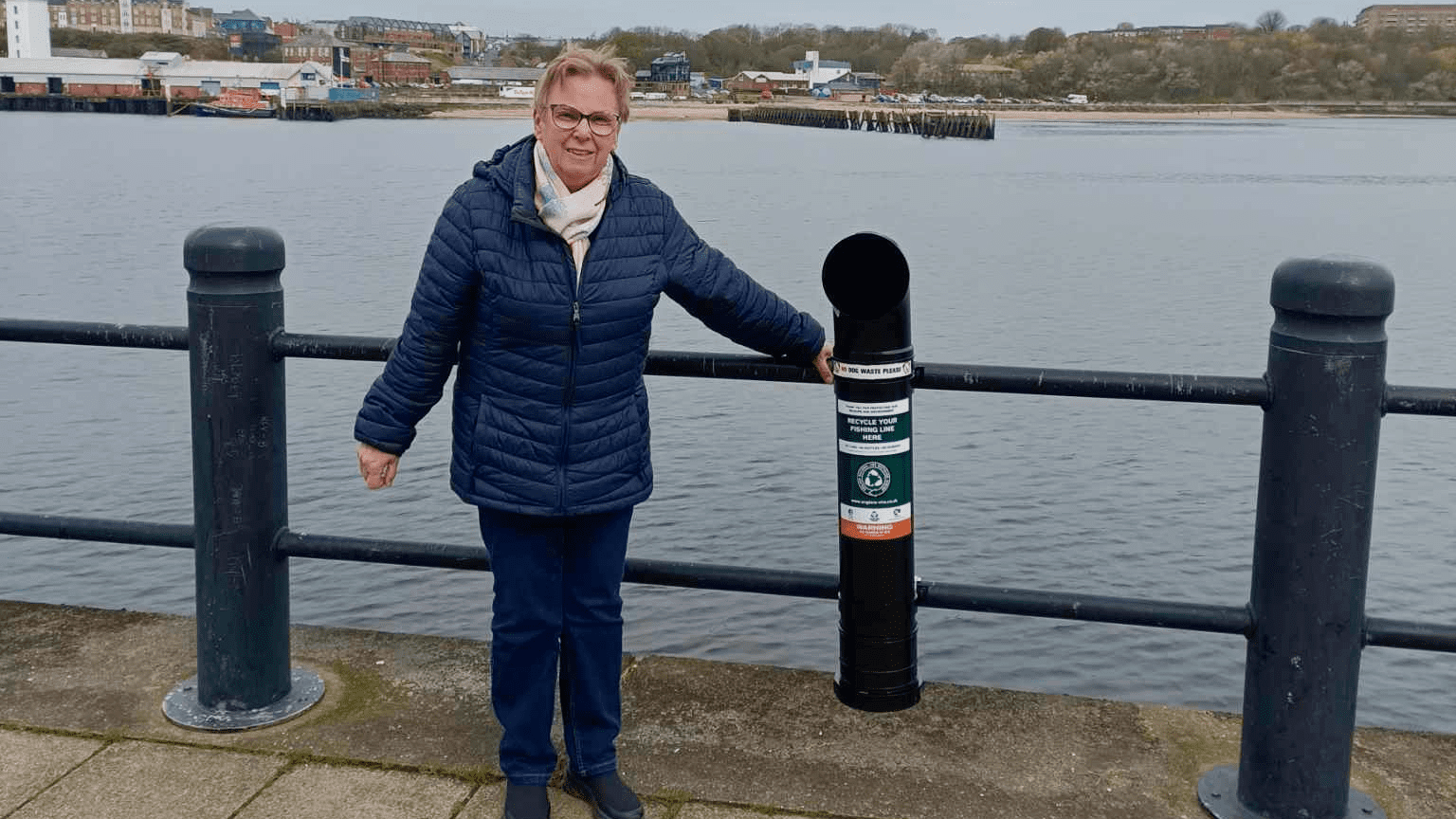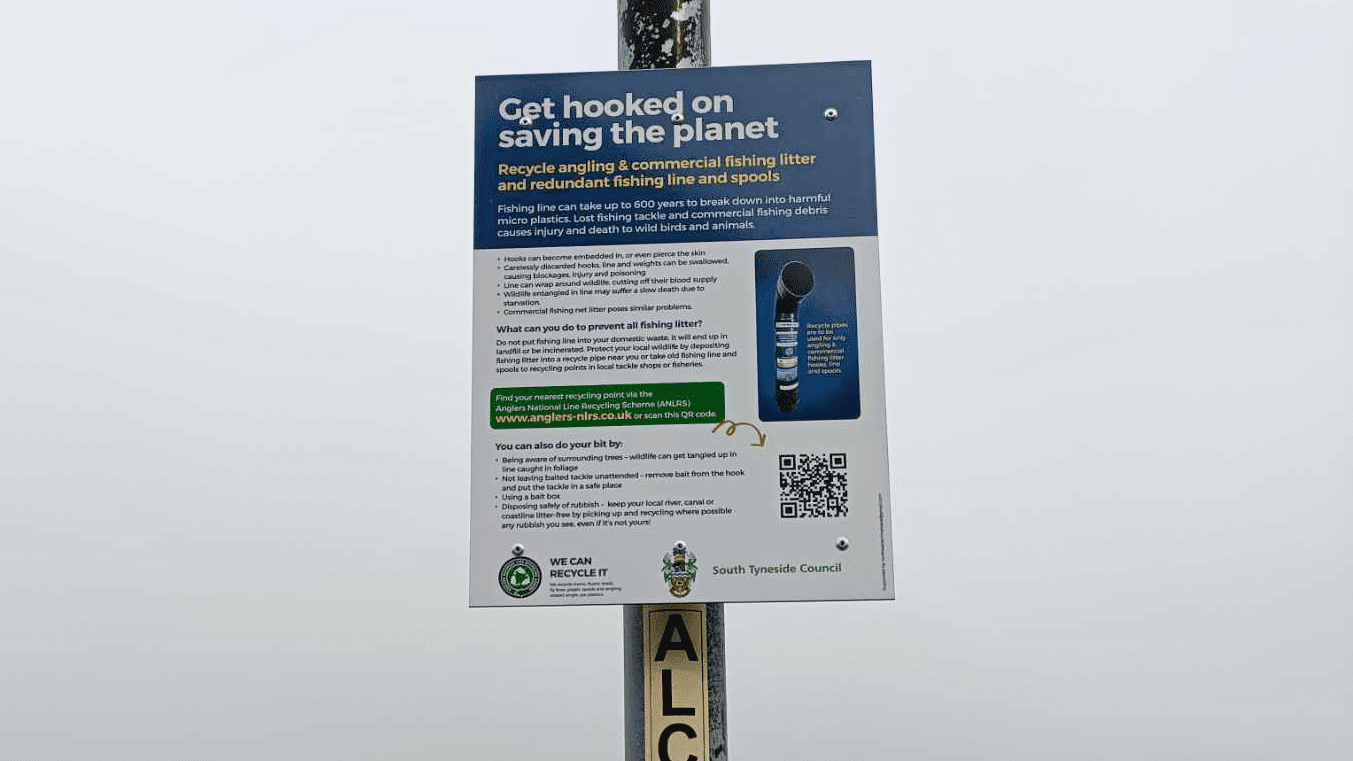Sue StoneHouse Tackles Marine Waste
South Tyneside Green Party
19th April 2024
Sue Stonehouse’s Commitment to Cleaner Rivers and Oceans with Fishing Waste Collection Points installed in South Shields.

Cllr Sue Stonehouse has been working hard organising Fishing and Angling Equipment Waste Points installed on the Riverside at Harbour View.
Sue says: Fantastic to see the fishing pipes have now been installed along Harbour View. Funded by the local community area forum budget, these collection points offer a great way to ensure hazardous waste doesn’t accidentally end up in our marine environment.
Sue Stonehouse, Councillor for the Beacon & Bents ward, has taken proactive steps towards mitigating the environmental impact of fishing by arranging the installation of fishing line recycling waste containers at Harbour View, on the riverside of the River Tyne.
Discarded angling and fishing equipment pose significant hazards to marine environments, endangering marine life and disrupting ecosystems, and can even disrupt marine traffic, vital to out local economy, and harm residents enjoying our Blue Flag beaches.
The durability of fishing line means it can persist in the environment for hundreds of years, continually ensnaring marine creatures. It is also non-biodegradable, meaning it accumulates over time, exacerbating the problem and amplifying its impact on our environment.

South Tyneside Green Party has a strong commitment to protecting the marine environment and promoting sustainable practices to ensure the health and resilience of marine ecosystems. This initiative aligns seamlessly with the core goals and values of the South Tyneside Green Party and the Council’s declaration to protect our marine environment.
Taking steps against plastic in our oceans is crucial to safeguarding the health of our marine ecosystems and the well-being of all life on Earth. Plastic pollution poses a significant threat to marine life, with millions of seabirds, mammals, and fish dying each year due to ingestion or entanglement in plastic debris.
Plastics in the ocean break down into microplastics, which can enter the food chain, potentially harming human health. By reducing plastic pollution, we can protect marine biodiversity, preserve delicate ecosystems, and ensure the sustainability of fisheries and coastal economies that are vital to our region.






